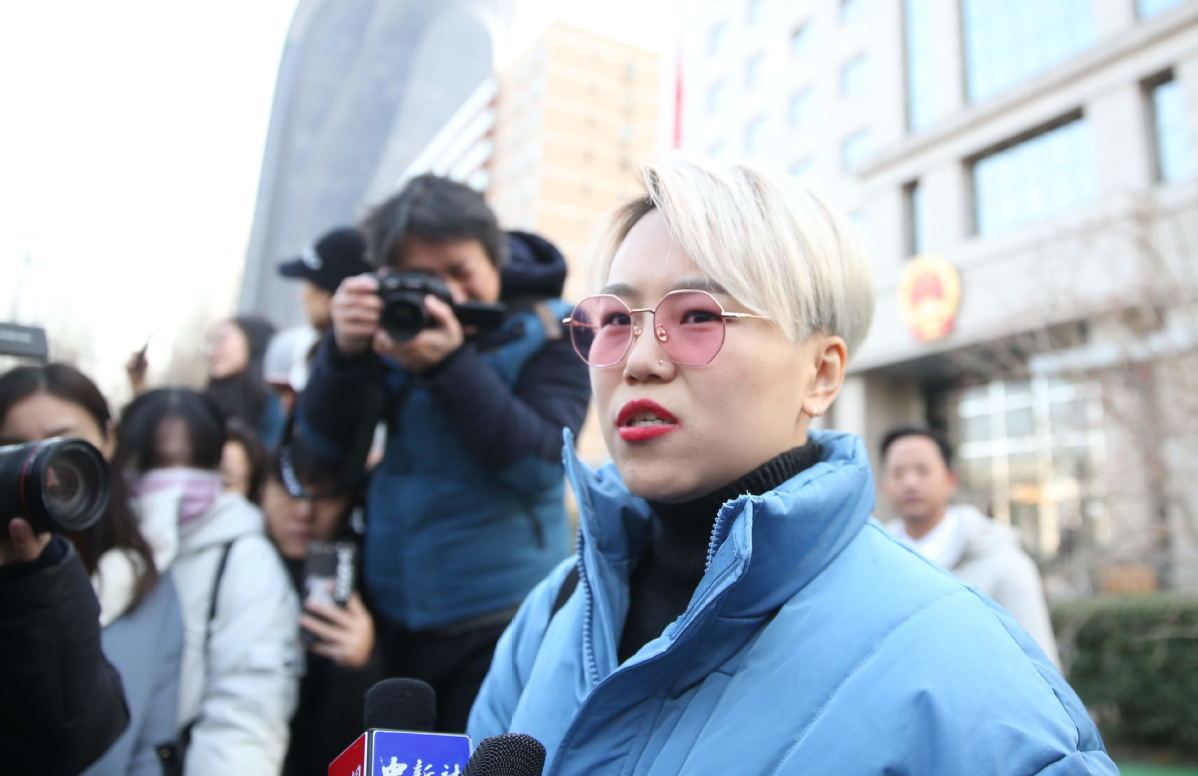
The plaintiff of the egg-freezing case, surnamed Xu, gives an interview in front of the court after the first hearing of the case in Chaoyang district in Beijing on Monday. (Photo: China Daily)
FOR THE FIRST TIME IN CHINA, the case of a single woman's right to freeze her eggs went on trial in Beijing recently. This is a good opportunity for the public to pay attention to single women's reproductive rights and gender equality. China Daily writer Wang Yiqing comments:
Xu Zaozao, a 31-year-old single woman, recently sued the Beijing Obstetrics and Gynecology Hospital for refusing to freeze her eggs on the ground that she is not married.
According to the Human Assisted Reproductive Technology Regulation issued by the National Health Commission in 2003, assisted reproductive technologies, which include freezing of eggs, are denied to single women because of a family planning policy.
China's population and family planning policies have greatly changed in recent years to cope with changing national population situations and social issues such as low fertility rate and an aging society, but the restrictions imposed on single women's reproductive rights have not been changed accordingly.
According to law, reproductive right is a legal right every citizen enjoys, irrespective of marital status.
Moreover, the existing regulations do not prohibit single men from preserving their sperms in sperm banks. It is therefore unreasonable to make a distinction when it comes to a woman's right to preserve her eggs.
With continuous social development and rising education levels, the age at which women can give birth has been delayed to ensure their self-improvement and enable them to meet their life and career goals.
Freezing of eggs is a modern way to ensure women can become mothers at a later date. This method will also help improve the fertility rate.
It is the legal right of citizens like Xu to safeguard their rights. And it is glad to see her case trigger wide public discussion, as this might go a long way to further protect a single woman's right to fertility and gender equality.


